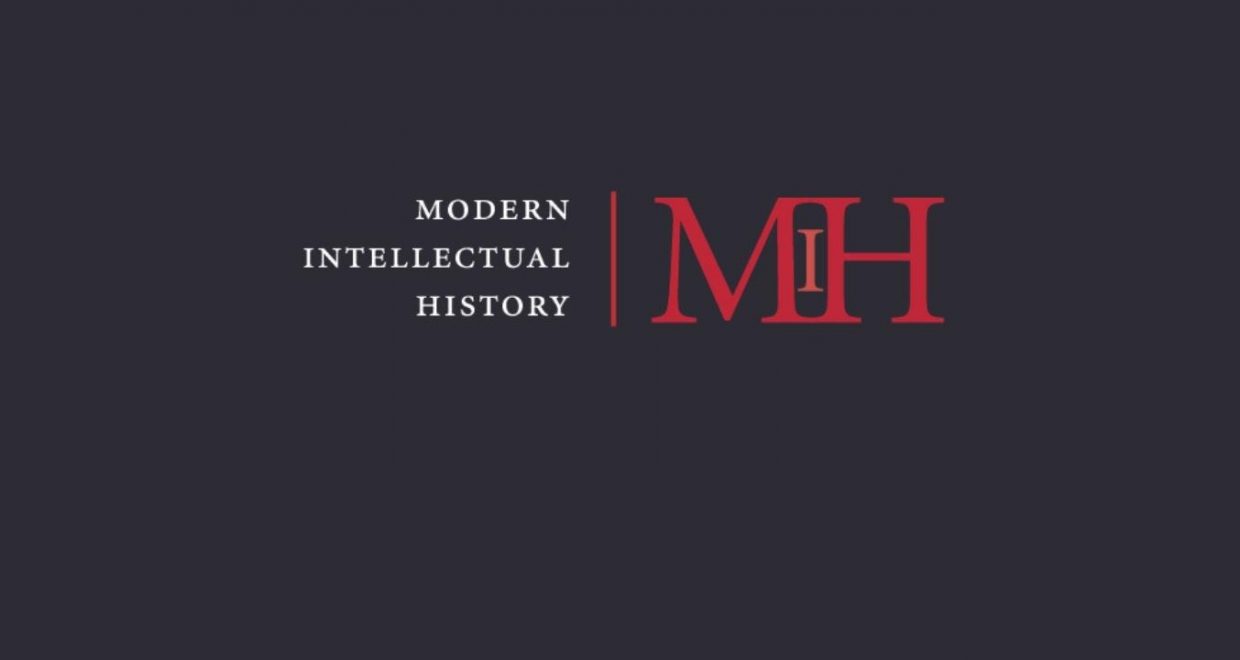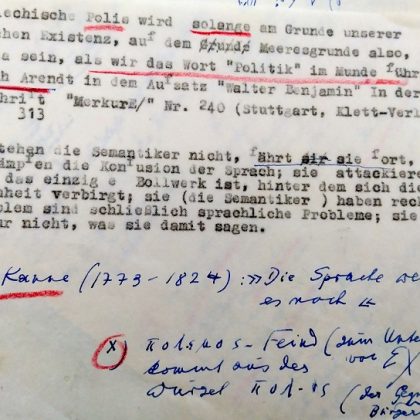From Christian Transcendence to the Maoist Sublime: Liu Xiaofeng, the Chinese Straussians, and the Conservative Revolt against Modernity
This blog accompanies Hang Tu’s Modern Intellectual History article, From Christian Transcendence to the Maoist Sublime: Liu Xiaofeng, the Chinese Straussians, and the Conservative Revolt against Modernity
The Chinese political thinker Liu Xiaofeng is widely considered a key figure in the formation of the “Chinese Straussian School,” a loose intellectual faction that preached anti-liberal doctrines and advocated a quasi-theological form of authoritarian leadership in contemporary China. Taking inspiration from the conservative teachings of Leo Strauss and Carl Schmitt, Liu and his allies promoted classical learning, created elitist “liberal arts” educational institutions, and waged cultural wars to eradicate the “corrosive influence” of Western liberal values lurking in Chinese academia and beyond. In 2010, Columbia Professor Mark Lilla published an article entitled “Reading Strauss in Beijing” and expressed his confusion about China’s “strange taste” in Weimar conservatism, which he interpreted as “tyrannophilia”—a narcissistic embrace of authoritarian politics. Similarly, numerous Chinese and Western critics have noted the illiberal tendency of Strauss’s self-proclaimed Chinese heirs. After all, what could possibility have induced Liu to abandon the “unfinished project” of enlightenment and justify ancient and modern tyranny?
In this new article, I suggest that Liu’s fascination with political theology was rooted in his earlier search for a “religious consciousness.” Before his conversion to Strauss, Liu was particularly well-known for his participation in the Sino-Christian theology movement, a collective scholarly endeavor to promote the study of Western faith traditions in mainland China and Hong Kong in the early reform era. The young theologian was alarmed by how the collapse of Mao’s socialist utopia had brought a “crisis of faith” among Chinese cultural elites and citizens, many of whom embraced materialism and cultural relativism in the age of global capitalism. Therefore, Liu struggled to carve out a space for religion—especially Christianity—as a privileged moral-political remedy for a post-Marxist Chinese society.
From this perspective, Liu’s turn from Sino-Christian theology to political theology was not merely motivated by political utilitarianism. . Throughout his circuitous intellectual journey, Liu was consistently guided by a single question: what kind of “religious consciousness” could compensate for the secularist myopia of modernity and provide moral-political instruction in a postrevolutionary age? Tracing Liu’s transformation from a passionate cultural Christian to a neoconservative guru, I explain how his thirst for transcendence beyond politics paradoxically aroused the desire for an absolute ground for politics. While Liu had yearned for an utterly transcendent God to redeem the Chinese mind, Strauss and Schmitt taught him that true divinity is too remote to provide any concrete, immediate instructions for the Chinese people. By comparison, the dark legacy of political theology—the investment of secular politics with the charisma of sacred authority—seems to be a more attractive, though dangerous, option. In the end, Liu turned away from the remote God of Christianity and celebrated Mao Zedong as a mythic “founding father” who could provide spiritual solidarity and social cohesion for the divided Chinese nation.
Admittedly, Liu’s Kierkegaardian “leap of faith” from Christiaan transcendence to the Maoist sublime shocked Chinese liberals as a scandalous tale of political regression. Yet I propose that Liu’s dubious political undertaking should not inhibit us from analyzing the development of his thought from within its own categories and systems. Therefore, this article elucidates the deeply contradictory nature of Liu’s thinking as a combination of metaphysical rumination and opportunistic intent, philosophical insight and political dogmatism, sincerity and hypocrisy.




